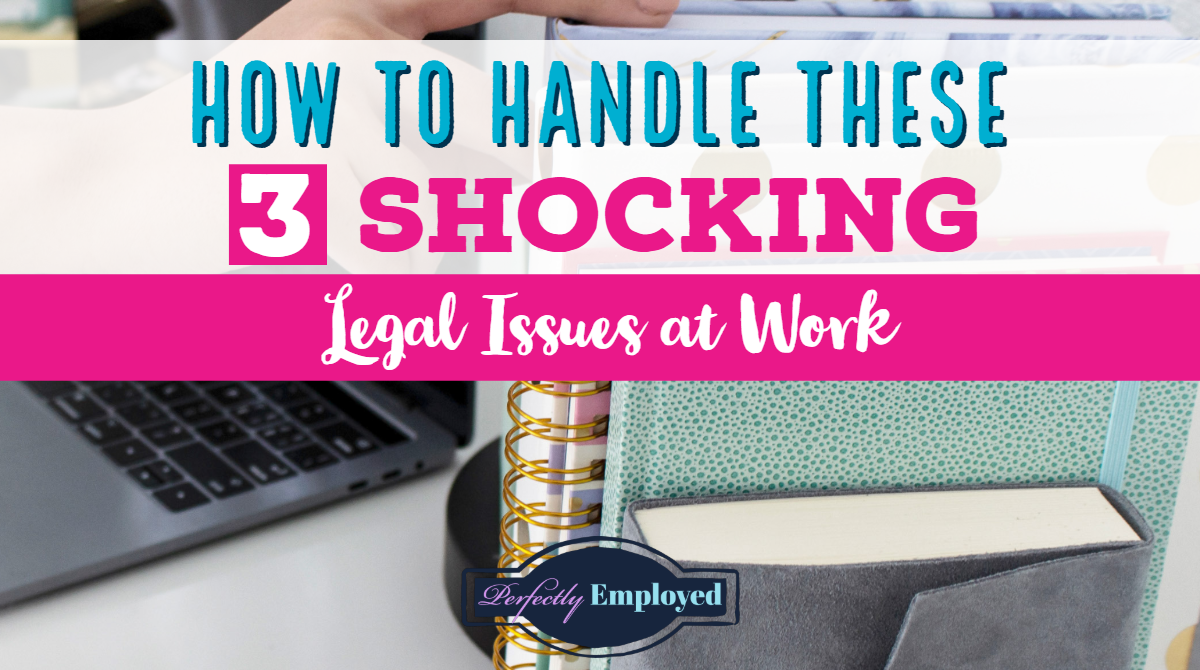For so many of us, work is something of a love and hate scenario. When work is going well and our career seems to be set on soaring it can feel like the best thing in the world and well worth that daily investment of time and that awful commute. When it’s going badly, however, it can feel like every part of you is suffering as you drag yourself into work ready to face another day of feeling unfulfilled and desperate for change.
Unfortunately, this can be made all the more unbearable if, for whatever, reason you suddenly find yourself caught in a legal dispute at work. Perhaps your rights are being trampled over or the terms of your contract are not being fulfilled. Whatever the case, the very best thing you can do is to make sure you are armed with the best in legal advice and with a team of excellent representation on your side whether that’s solely from a lawyer or with the help of your union representative.
Take a look at what you need to do to make sure you get the best lawyers in town and some of the mistakes to avoid when appointing someone. Our guide will take you through the process.
Get A Recommendation
Whether you’ve got friends and family in the business or just someone in the know, you’re going to want to cast your net far and wide to get the best workers’ compensation lawyer. Ask around and find out who your colleagues have used or who friends would tell you go to and find a recommendation that checks out when you do a little research on them.
Remember that your company will be well versed in hiring and firing and everything in between so having someone experienced and capable is going to be crucial. In an ideal world you’ll be looking at resolving the issues before they progress to a court or a tribunal scenario but you if they can’t then someone on your side with a stellar reputation is going to show the other side how very serious you are at getting the case settled in your favor.
Search online, look for positive outcomes of cases similar to yours and who was representing the worker. Get in touch and see if they are free and willing to take you for an initial consultation to discuss your case.
Talk It Through
Most firms will give walk-ins sometime between fifteen and thirty minutes to talk through a case before they start charging, usually by the hour. Make an appointment for a free short consultation and go armed with the outline facts of your case, any documents you need to back it up and any questions you might have to start taking the case forward. Use this time wisely and at the same time see if you feel your lawyer will be a good match for your case.
Find out about any relevant experience they have on cases similar to yours and if you feel they would be effective at communication with you effectively. Do you feel inspired by their confidence or that they fobbed you off with answers you wanted to hear. In a relatively short time you will be able to make an assessment of your compatibility and make a decision if you want to proceed.
Research Before Deciding
You don’t have to make a decision to appoint straight away, instead go away and do some research. Although time is important and you want to give your lawyer as much of it as possible to prepare, you want to double check that they are everything they say they are before you sign them up to your case.
Many court cases are a matter of public record and you should be able to find some references to wins and losses online. Read the reviews, read around any articles they’ve written and in short do your due diligence into the person handling your case
Person Of Character
What type of person are you looking for in a lawyer? Are you looking for someone dogged and determined, prepared to win at any cost, which might end up being significant, or are you looking for someone logical and straightforward with an eye for detail and getting the job done? They may not be charismatic but they are solid and reliable.
The lawyer you choose will end up being very much a question of your personal taste and how well you can relate to them during your meetings. The one thing you will need to make sure is that they have experience in your particular case and in the individual circumstances surrounding it.
Your lawyer is working for the best outcome for you, so make sure it’s someone you find relatable and reassuring as well as highly skilled and capable of taking your case all the way to the best conclusion they can get for you.
Don’t Forget the Money
Money can very quickly disappear when it comes to ongoing legal fees and trial expenses. It’s easy to sign off for a stream of work and very quickly see the bills mounting up. Your lawyer, or their team, should be able to explain to you very clearly where your money is going, what it’s being used for and how much you are going to be likely to spend on your overall case.
The good news is that while lawyer fees are expensive there are several ways you can approach paying them. You might go for a pay-as-you-go approach, paying monthly as your lawyer bills you per hour. You might instead be able to negotiate an upfront retainer then pay the rest from any payout you receive by way of compensation. Your lawyer may have all their legal fees paid by the opposition if the case does go to trial or tribunal, in which case you’ll either be able to claim the money back or have them settle the bill with your lawyer.
Often lawyers will accept a bit of both and will be able to offer you advice on any legal aid that you may be entitled to meet your costs. You might also need to consider a loan to cover the costs so talk to your lawyer about the various options.
Feeling Confident
If you’ve followed this advice up to now, you probably do have something of an idea of who you’d want to have on your team. You’ll know whether you’re looking for a large company with access to a large team of lawyers or to a small firm that is niche enough to focus on exactly your type of case with zero distractions.
Whoever you choose you’ll want to concentrate on getting one key component right: communication. How confident are you in your lawyer communicating effectively with you? How well and how clearly do you work together? You might want to talk to your lawyer on a daily basis. On the other hand, that might feel like too much and you’ll be happy with a weekly catch up call, confident that they’ll be in touch with you straight away should there be a development or a need to produce some more paperwork.
Either way, these are decisions that need to be decided upon during your discussions to everyone’s satisfaction.
Make sure that you have everything you need and keep an organized file of your paperwork for the smooth running of your case and to help your lawyer have the best chance of fighting your corner, armed with all the facts.
When you’ve spent all your life working and experiencing the ups and downs of pursuing a career, it can feel like a major blow to have to go down the litigation route against your firm but, while the cost is high both financially and emotionally, resolving the issue is going to feel like a weight has been lifted from your shoulders.
Start your research today and find a lawyer that ticks all your boxes in terms of experience, great communication and a clear desire to win your case on your behalf. Ask around for recommendations but ultimately you’ll want to go with your gut instinct and appoint someone you can instinctively trust.
Think carefully about your budget and how much you are willing to risk to have someone take the case on, think too about the result you’re looking for. Are you hoping to resolve the matter out of court and return to work or are you hoping to draw maximum publicity and therefore damage to the company while also receiving some form of compensation. Both come at a cost and you will have to weigh up which path is for you.
Taking on a lawyer can feel stressful and overwhelming but when you’re out of your depth you need someone who can take the matter into their own capable hands and guide you through the rough waters of litigation. Finding the right lawyer is worth its weight in gold so begin your search today.
Save to Pinterest

















